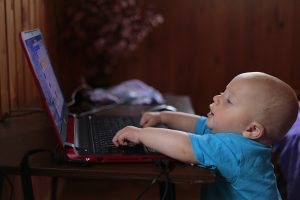Children with disabilities often face unique challenges as they transition into adulthood, and it is essential to tailor life skills and independent living programs to meet their specific needs. These programs should focus on fostering independence, self-sufficiency, and empowerment to help children with disabilities navigate the complexities of adult life. Understanding Individual Needs It is crucial to recognize that each child with a disability has unique strengths, abilities, and challenges. By conducting thorough assessments and evaluations, educators and caregivers can identify the specific life skills that need to be developed for each child, ensuring a personalized approach to their development. Understanding these individual needs is the foundation for creating targeted and effective programs that cater to each child’s requirements, strengths, and areas of improvement.
Customized Assessments
Conducting assessments is more than just a one-time evaluation; it’s an ongoing process. Regular check-ins allow for adjustments to be made as children grow and their needs evolve. For instance, a child who initially struggles with communication might become proficient but later face challenges in social interactions. Tailored assessments can include:
- Behavioral Observations: Watching how a child interacts in various settings.
- Feedback from Families and Educators: Gathering insights from those who know the child best.
- Standardized Testing: Using specialized tools designed for children with disabilities to gauge specific skills.
Building a Comprehensive Curriculum
Developing a comprehensive curriculum that addresses a wide range of life skills is essential for children with disabilities. This curriculum should cover areas such as personal hygiene, household chores, financial literacy, communication skills, and social interactions. By providing a well-rounded approach, children with disabilities can acquire the skills necessary for independent living. A comprehensive curriculum not only equips children with practical skills but also enhances their overall quality of life and prepares them for a successful transition into adulthood.
Personal Hygiene and Health
Teaching basic hygiene and health management is a cornerstone of independence. Programs can include:
- Daily Routines: Establishing a consistent schedule for personal care tasks.
- Interactive Workshops: Hands-on sessions where children practice brushing teeth or washing hands.
- Use of Visual Aids: Charts or apps that guide through each step of hygiene routines.
Financial Literacy
Understanding money management is crucial for self-sufficiency. Incorporate:
- Budgeting Workshops: Simulated shopping trips to teach budgeting skills.
- Savings Programs: Setting goals for saving, even if it’s just small amounts.
- Role-Playing Scenarios: Practicing transactions in a controlled environment.
Utilizing Adaptive Strategies
Children with disabilities may require adaptive strategies and tools to support their learning and development. Utilizing assistive technology, visual aids, social stories, and other adaptive strategies can help children with disabilities effectively acquire and practice life skills, enhancing their independence and self-sufficiency. Adaptive strategies play a crucial role in bridging any gaps in learning and development, enabling children with disabilities to overcome challenges and excel in various aspects of their lives.
Assistive Technology
Technology can be a game-changer for children with disabilities. Consider:
- Communication Devices: Tools like tablets with speech-generating applications.
- Smart Home Devices: Using voice-activated technology to control home environments.
- Educational Apps: Apps designed to teach and reinforce life skills through interactive play.
Visual and Social Tools
Visual aids and social stories can simplify complex tasks or situations:
- Picture Schedules: To help children understand and anticipate daily activities.
- Social Storybooks: Custom-made stories that explain social norms and expectations.
- Video Modeling: Demonstrating tasks through videos that children can watch repeatedly.
Collaborating with Multidisciplinary Teams
Effective life skills and independent living programs for children with disabilities involve collaboration among educators, therapists, parents, and other professionals. By working together as a multidisciplinary team, tailored interventions and support can be provided to address the individual needs of each child, maximizing their potential for self-sufficiency. Collaboration among diverse professionals ensures a holistic approach to the development and well-being of children with disabilities, leading to comprehensive support and guidance tailored to their specific requirements.
Building a Strong Support Network
A robust support network is essential. Key components include:
- Regular Team Meetings: To discuss progress and adapt strategies as needed.
- Shared Resources: Creating a repository of tools and knowledge accessible to all team members.
- Family Involvement: Engaging families in the process to ensure continuity at home.
Encouraging Self-Advocacy and Empowerment
Empowering children with disabilities to advocate for themselves and make informed decisions is key to enhancing their self-sufficiency. By teaching self-advocacy skills, problem-solving techniques, and decision-making abilities, children with disabilities can confidently navigate the challenges of adulthood and embrace their independence. Fostering self-advocacy and empowerment not only promotes independence but also instills a sense of confidence and self-worth in children with disabilities, empowering them to take control of their lives and future.
Teaching Self-Advocacy
Self-advocacy is about knowing and communicating one’s needs. Strategies include:
- Role-Playing Exercises: Practicing scenarios such as asking for help or expressing preferences.
- Workshops on Rights and Responsibilities: Understanding personal rights and how to voice them.
- Mentorship Programs: Pairing children with mentors who have similar disabilities and have successfully achieved independence.
Real-Life Application and Community Integration
One of the most effective ways to prepare children for adulthood is through real-life application of their skills in community settings.
Community-Based Learning
Engaging with the community offers practical experiences:
- Volunteer Opportunities: Allowing children to volunteer in local businesses or organizations.
- Internship Programs: Partnering with companies willing to provide supportive work environments.
- Recreational Activities: Encouraging participation in community sports or clubs to build social skills.
Continuous Evaluation and Feedback
Regular feedback loops ensure that programs remain effective and relevant:
- Progress Reviews: Frequent evaluations to assess skill development and adapt plans.
- Feedback from Participants: Encouraging children to share their thoughts on what works for them.
- Outcome Measurements: Tracking long-term success rates and adjusting strategies accordingly.
Expanding the Curriculum for Specific Needs
To further enhance the preparedness of children with disabilities for adulthood, programs must delve into more specialized areas that target specific needs not typically covered in standard curricula.
Emotional Regulation and Coping Strategies
Children with disabilities may experience heightened emotional responses and stress. Teaching coping strategies is crucial:
- Mindfulness Practices: Introducing techniques such as deep breathing or meditation to manage stress.
- Emotion Recognition: Helping children label and understand their emotions through activities like mood charts.
- Problem-Solving Workshops: Offering scenarios where children can practice resolving conflicts or challenges.
Enhanced Communication Skills
Communication extends beyond verbal interactions and can include non-verbal cues, body language, and even digital communication.
- Sign Language Courses: For children who benefit from non-verbal communication methods.
- Digital Communication Training: Teaching safe and effective use of email, text messaging, and social media.
- Non-Verbal Communication Workshops: Using activities to improve understanding of body language and facial expressions.
Promoting Health and Wellness
Health and wellness are integral to independent living, and children with disabilities can benefit from tailored programs that address their physical and mental well-being.
Physical Activity and Fitness
Encouraging physical fitness tailored to individual capabilities helps in maintaining overall health:
- Adaptive Sports Programs: Offering sports adapted to various physical abilities, like wheelchair basketball.
- Fitness Routines: Creating personalized exercise plans that accommodate physical limitations.
- Dance and Movement Classes: Using music and movement as a form of exercise and expression.
Nutrition and Healthy Eating
Teaching about nutrition ensures children understand the importance of a balanced diet:
- Cooking Classes: Hands-on lessons in preparing simple, healthy meals.
- Grocery Shopping Tips: Teaching how to choose nutritious foods on a budget.
- Understanding Food Labels: Educating on how to read and interpret nutritional information.
Technology Integration for Enhanced Learning
Technology can significantly enhance learning experiences for children with disabilities, making education more accessible and engaging.
Virtual Reality (VR) and Augmented Reality (AR)
These technologies offer immersive experiences that can aid in learning difficult concepts:
- VR Simulations: Creating real-world scenarios where children can practice life skills in a safe environment.
- AR Learning Tools: Using augmented reality to overlay information and instructions onto real-world objects.
- Interactive Storytelling: Utilizing VR for engaging, interactive narratives that teach social and practical skills.
Robotics and Coding
Introducing children to technology through robotics and coding can open new avenues of learning and career opportunities:
- Robotic Kits: Hands-on projects that teach problem-solving and teamwork.
- Coding Classes: Programs like Scratch or Blockly that make coding accessible and fun.
- Tech Clubs: After-school clubs focused on building and programming robots.
Addressing Common Challenges and Misconceptions
While developing these programs, it’s vital to address common challenges and misconceptions that may hinder the effectiveness of life skills training.
Overcoming Low Expectations
There can be a tendency to underestimate the capabilities of children with disabilities. It’s important to set high yet achievable goals:
- Celebrating Milestones: Recognizing and rewarding every achievement, no matter how small.
- Encouraging Risk-Taking: Allowing children to try new things and learn from mistakes.
- Goal Setting Workshops: Teaching children to set and work towards personal goals.
Ensuring Accessibility
Accessibility should be at the forefront of program development, ensuring inclusivity:
- Barrier-Free Environments: Ensuring physical spaces are accessible to all children.
- Inclusive Language: Using language that respects and empowers all participants.
- Adaptive Materials: Providing materials in various formats, such as large print or audio.
By understanding individual needs, building comprehensive curricula, utilizing adaptive strategies, collaborating with multidisciplinary teams, encouraging self-advocacy, and integrating real-life applications, programs can effectively prepare children with disabilities for adulthood. Each step is a building block towards achieving greater independence and self-sufficiency, paving the way for a fulfilling adult life. With a commitment to continuous improvement and innovation, these programs can evolve to meet the ever-changing needs of children with disabilities, ensuring they have the tools and confidence to thrive in adulthood.



